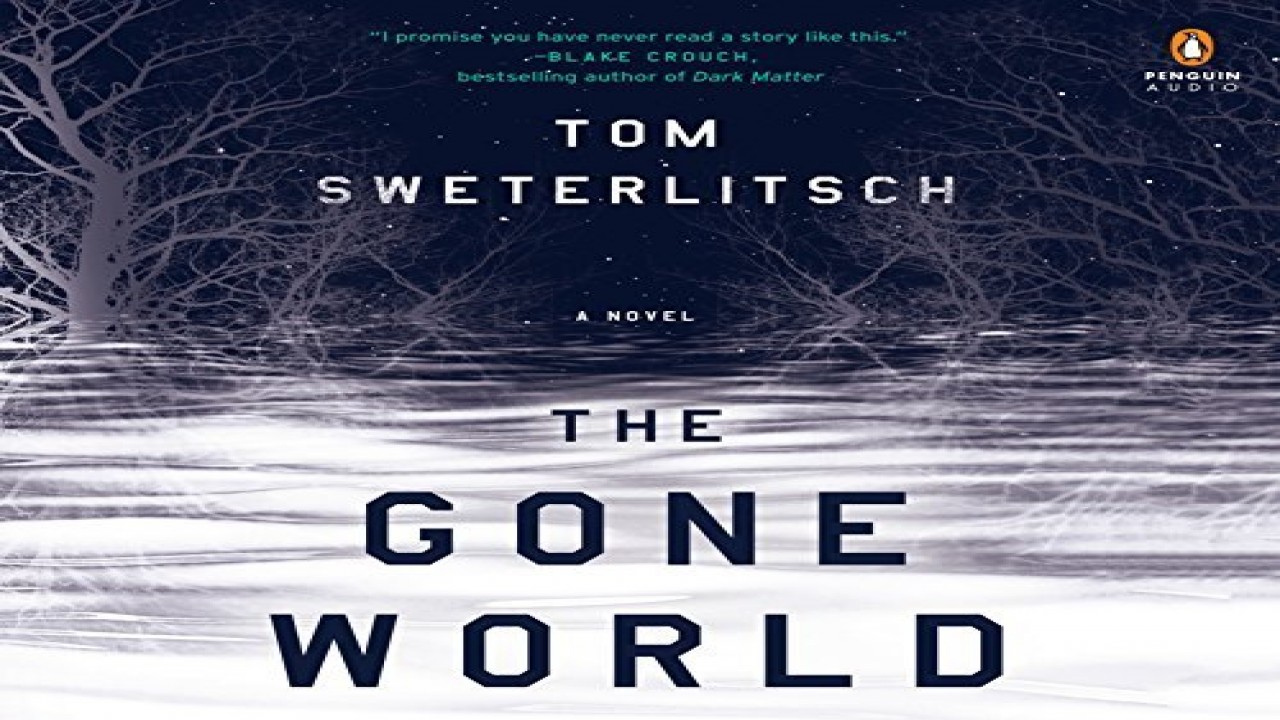The Gone World: Time Twisting Detective Story Is Satisfying, Mind-Bending

The police procedural is the perfect load-bearing structure for genre fiction, giving us a way into the outre through the perspective of the consummate rationalist, whose job it is to investigate and explain the irrational. Not that every cop is a Rust Cohle, a Jimmy McNulty, or even a Hank Schrader; but the job requires keen observation, objectivity, and insightfulness to be done well. It so happens that these elements also correspond to well-done science fiction, which is the simplest way of introducing Tom Sweterlitsch’s The Gone World, since it is exactly that. But let’s complicate it: I’m willing to name The Gone World one of the finest detective novels of the decade; an engrossing character study of its protagonist Shannon Moss; and, on top of that, a thrilling, thought-provoking rumination on time, existence, and the ways in which these things get tangled, carried out against the reliable foundation of the police procedural.
The Gone World begins with Moss at the scene of a murder, and follows her investigation into the primary suspect, a rogue Navy SEAL. Soon, we discover that Shannon Moss is an agent with the Naval Criminal Investigative Service, which utilizes time travel to investigate cases of special importance, of which this murder certainly is: the SEAL happens to be linked to the NCIS, a former pilot belonging to a crew thought to have been lost in Deep Time. Time travel is not perfect in Sweterlitsch’s grounded world, and neither is the NCIS’s use of it. The technology allows us to visit possible futures — in which we may meet versions of family, friends, and even ourselves — to observe possible outcomes of decisions made, or things done, in the past. This alone would make for a meditative good time, but it’s not long before the thread of Moss’s investigation gets tangled in the larger mystery of the so-called Terminus: the end of humanity, a point after which the time-travellers of the NCIS are unable to cross, and which is inexorably and inexplicably creeping toward the present.
Ordinarily, this premise and the questions it raises — who is the Navy SEAL? What really happened to his crew? What does it have to do with the Terminus? Can the end of humanity be prevented? — would be enough for empty-calorie schlock, but Sweterlitsch’s interests lie elsewhere. The Gone World is oblivious to genre as it hones in on knottier philosophical questions — how are we bound by time? Can we be freed from time? — and, in the process, develops thematic preoccupations similar to those explored in such disparate sci-fi cul-de-sacs as Primer and Interstellar.
The prose is sparse and hardboiled, maintaining a clinical distance from the events of the novel, as befitting the first-person account of an individual for whom personal attachment is irrelevant, if not dangerous. But many of the narrative’s emotional peaks call for subjective response, and so, as time and distance grow short, Moss’s veneer cracks. Passages verge almost accidentally on the poetic, one instance involving a lengthy rumination on the Lucifer flower, a passage that happens to illuminate the structural, thematic, and emotional geography of the story. These are things we have only glimpsed from the corners of Moss’s eyes up to that point, and in fact, it’s not even Moss that ruminates on the Lucifer; but her decision to include the conversation, unfiltered and followed by a pregnant Huckleberry Finn-ish silence, indicates that something in it resonates with her, and so with us.
In these pages, you will find a novel more surreal and cerebral than I am able to elucidate here without spoiling some of its most jaw-dropping flights of imagination, but suffice to say that I am not the only one impressed with it. Neil Blomkamp (District 9, and mastermind of Oats Studio) has already optioned the rights for a film adaptation we’ll see sooner than later, I suspect. Blomkamp has had a rocky journey since his debut, but in The Gone World, he may have stumbled across the way back to success — all he has to do is surrender, and let himself be led where it wants him to go.
Although The Gone World is only Tom Sweterlitsch’s second novel following a widely praised debut in Tomorrow and Tomorrow, there is a controlled sense of urgency and creative ambition underpinning the gravitas, stakes, and detail of The Gone World. Born from a conversation with his brother in the FBI and fleshed out with help from friends in the field of quantum physics, you can be sure that the “science” part of The Gone World‘s sci-fi is well-accounted for. But, beyond that, Sweterlitsch shows himself to be storyteller of rare balance and craftsmanship, sensitive to the interior worlds of his characters in the midst of wider-scope world building and information flow. Even as the science approaches incomprehensibility in that Shane Carruth way, and the plot ramps up to unapologetic spectacle, his voice remains a concise and compelling presence, delivering startling insights from a position fiercely rooted in character. It’s an alchemy that satisfies like only the best weird fiction can.



